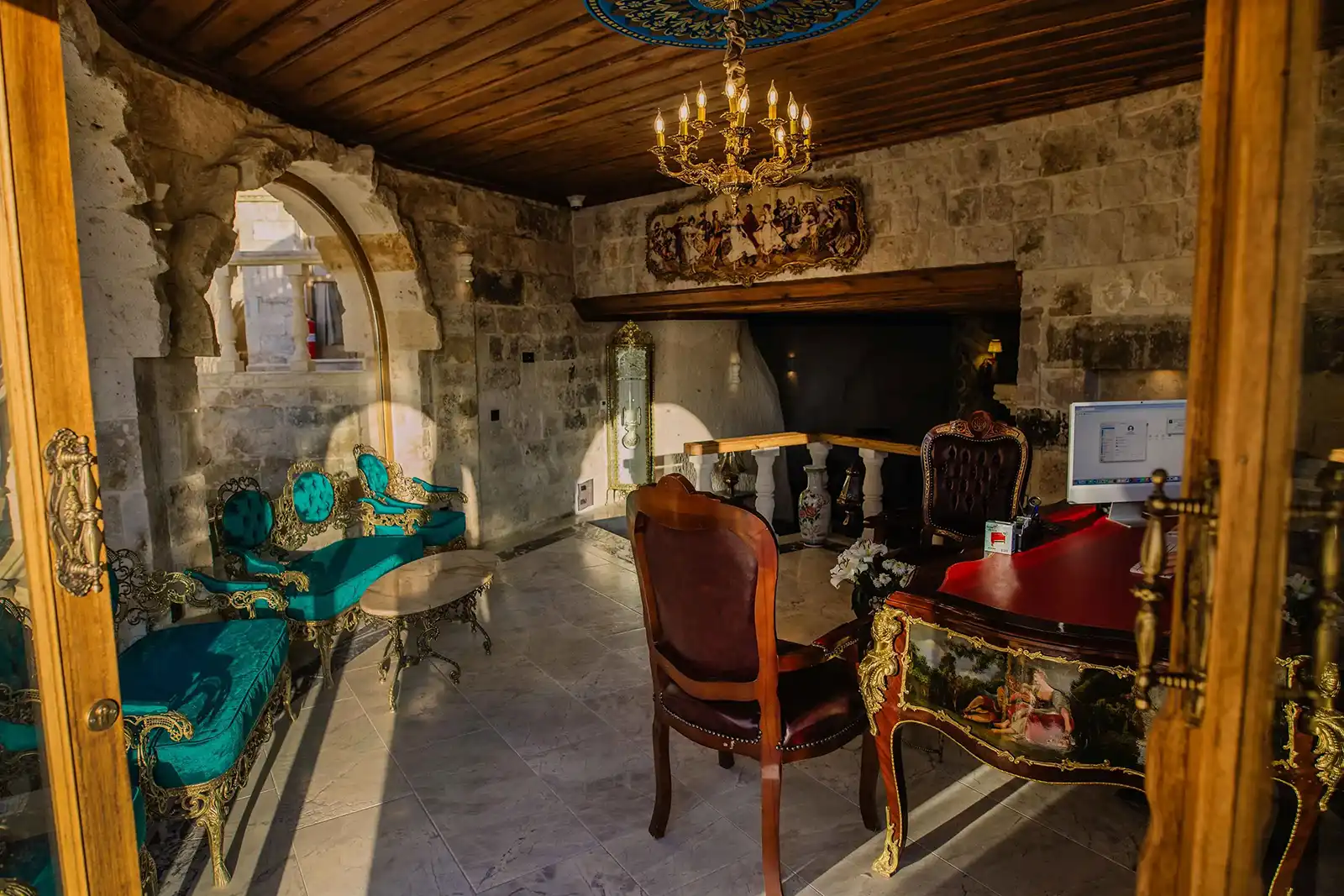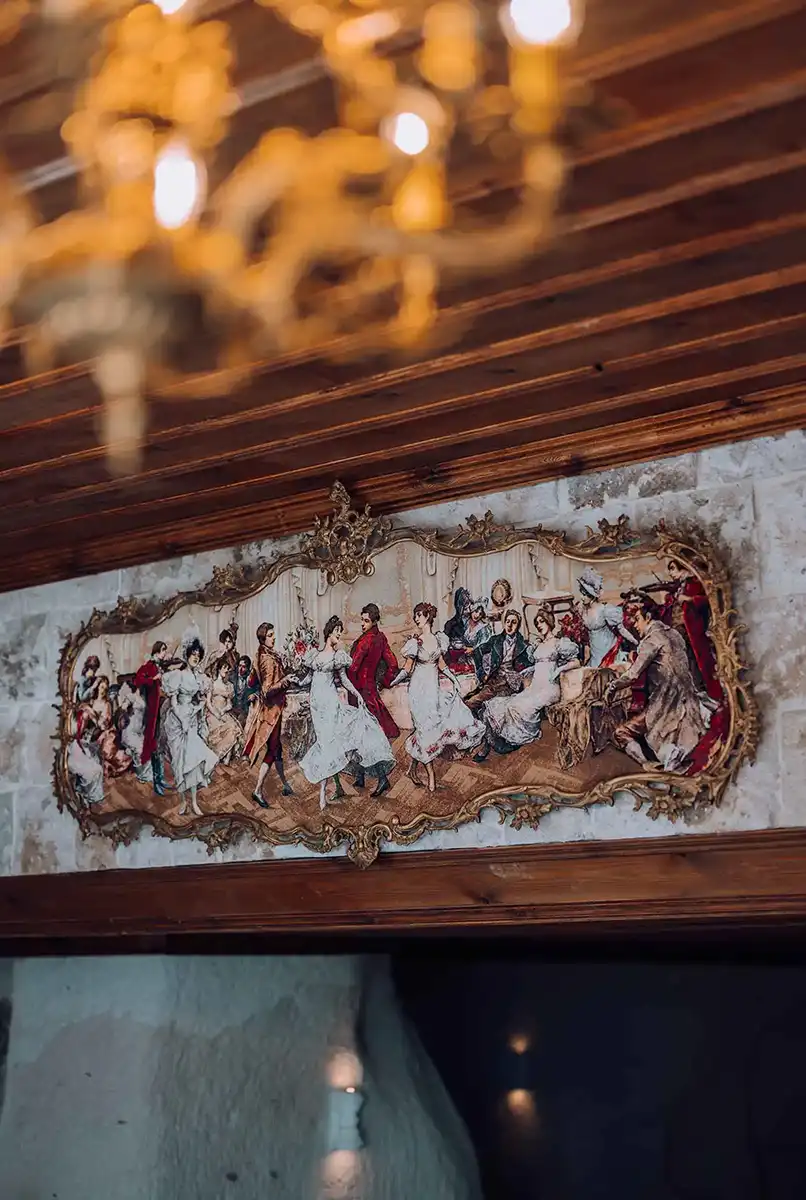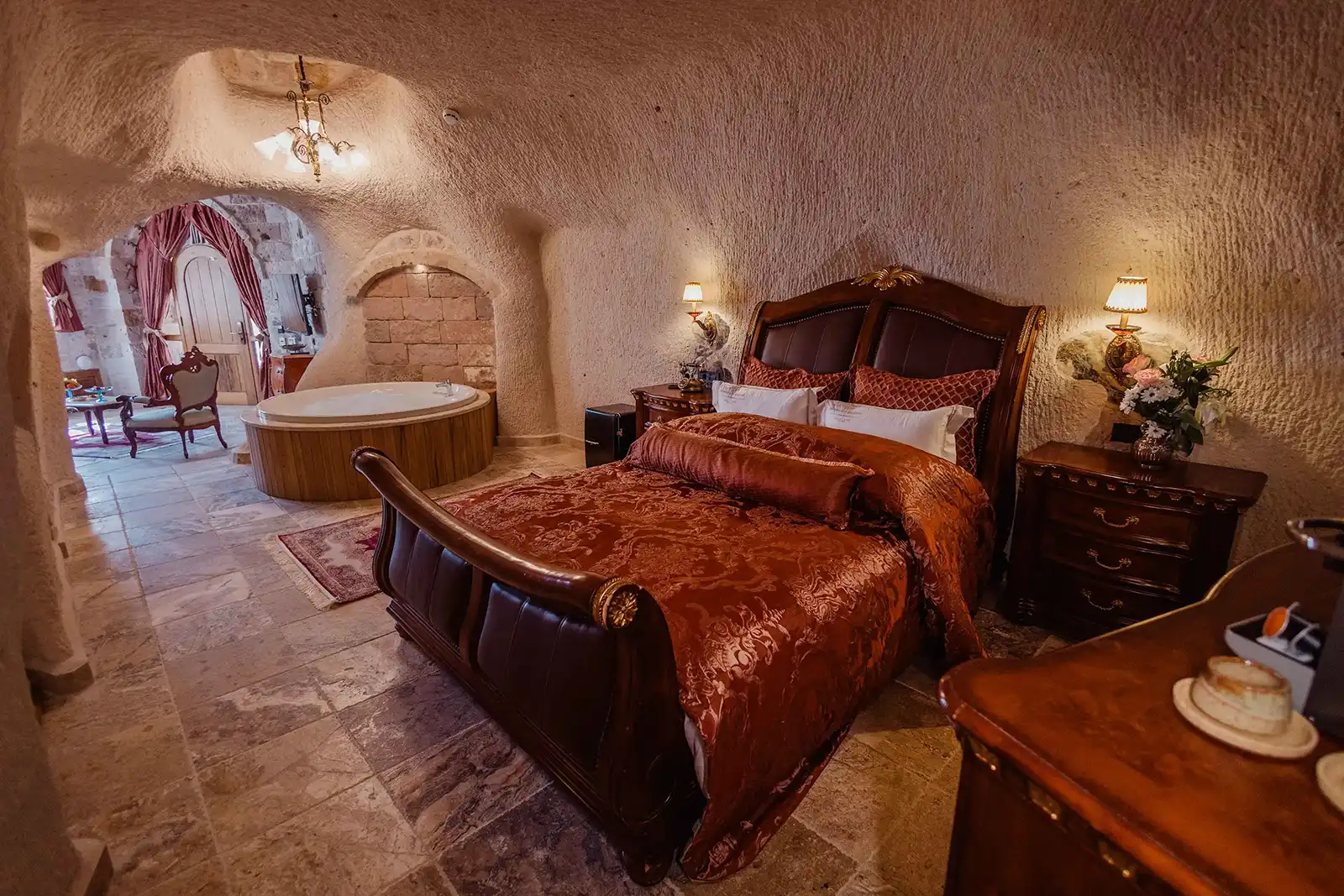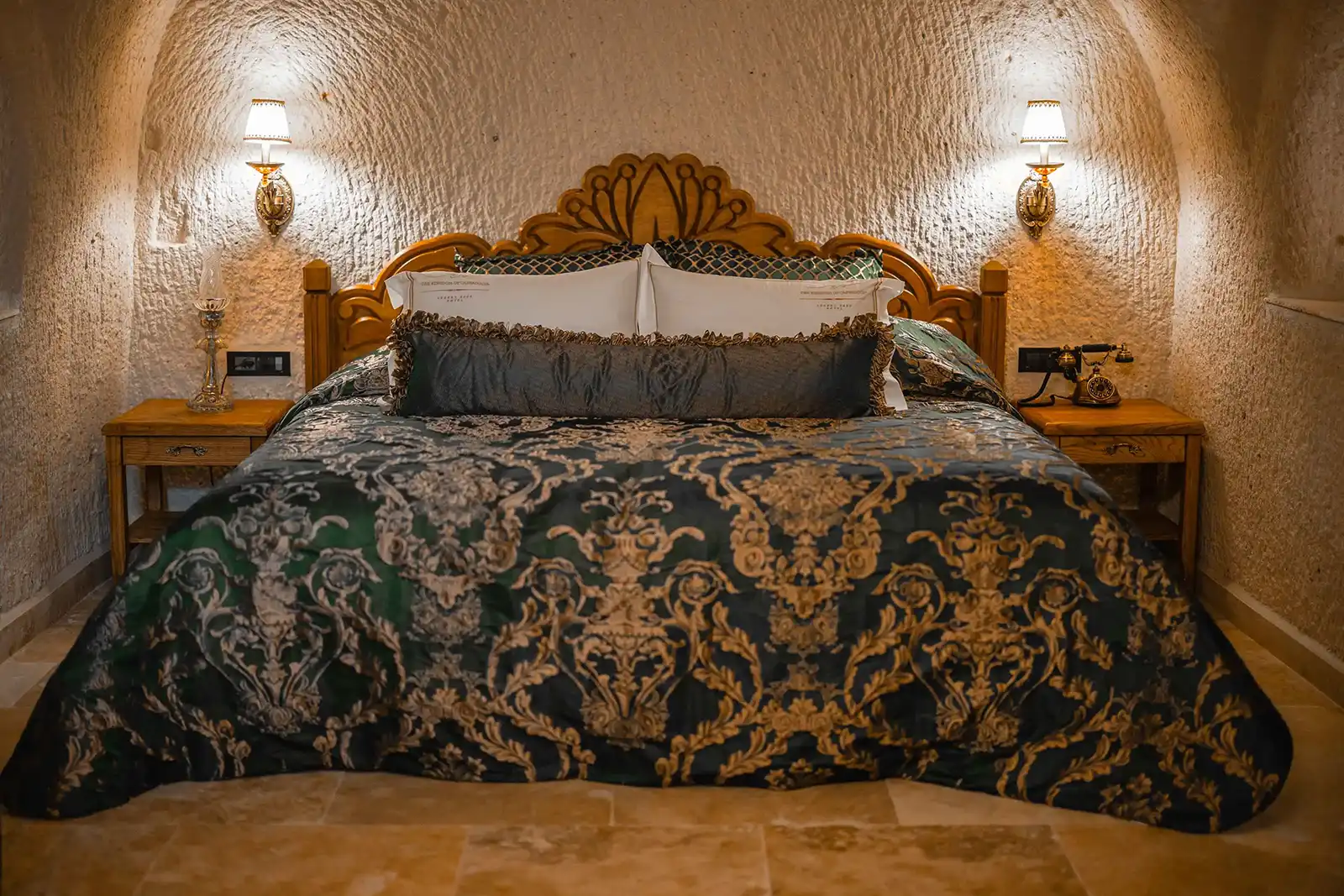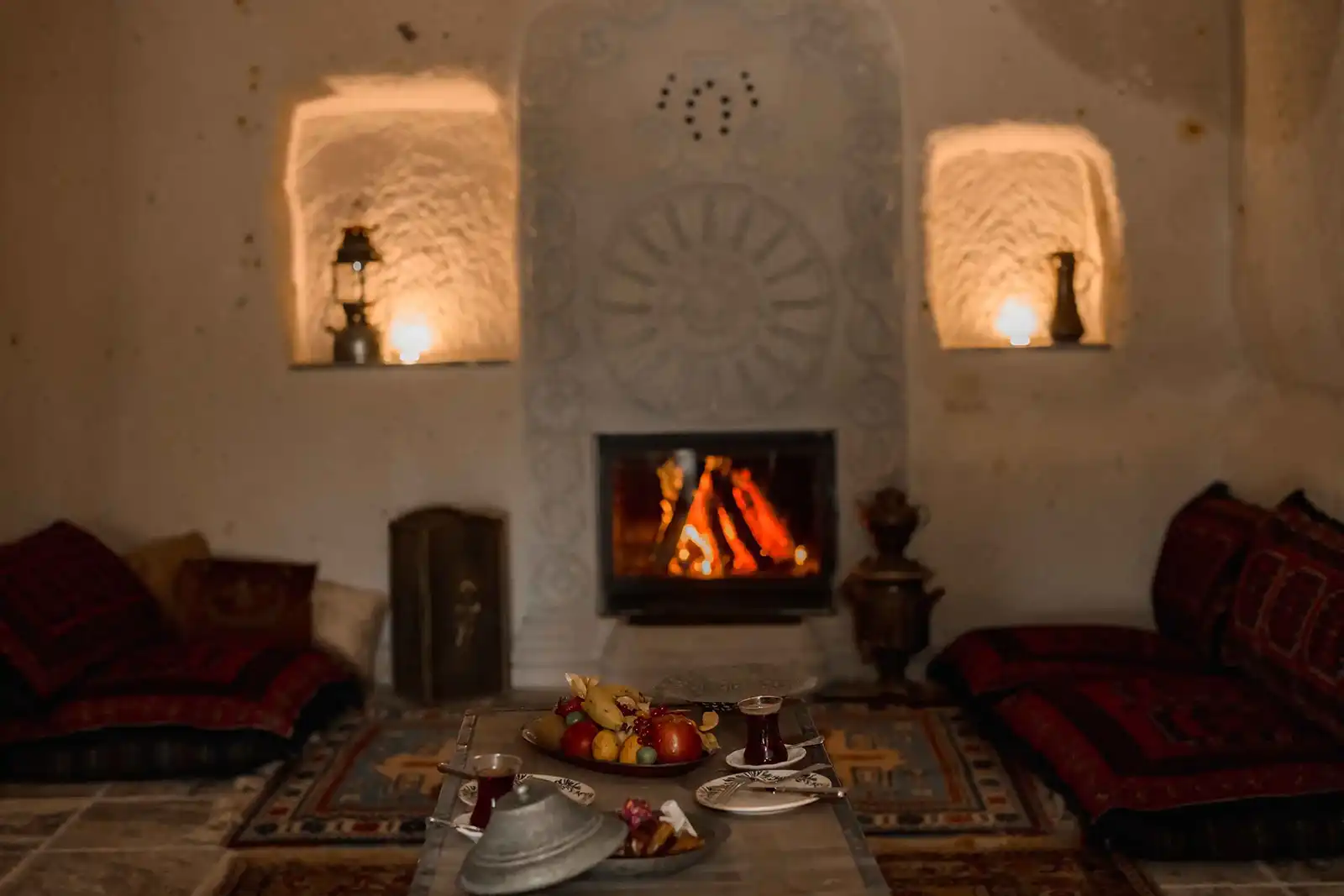Around 1,700 years ago, in the heart of Cappadocia, the enchanting peak now known as Uçhisar Castle stood as a vital settlement and watchtower.
Around 1,700 years ago, in the heart of Cappadocia, the enchanting peak now known as Uçhisar Castle stood as a vital settlement and watchtower, thanks to its natural structure and strategic location. It was one of the key strongholds of the kingdoms of the time.
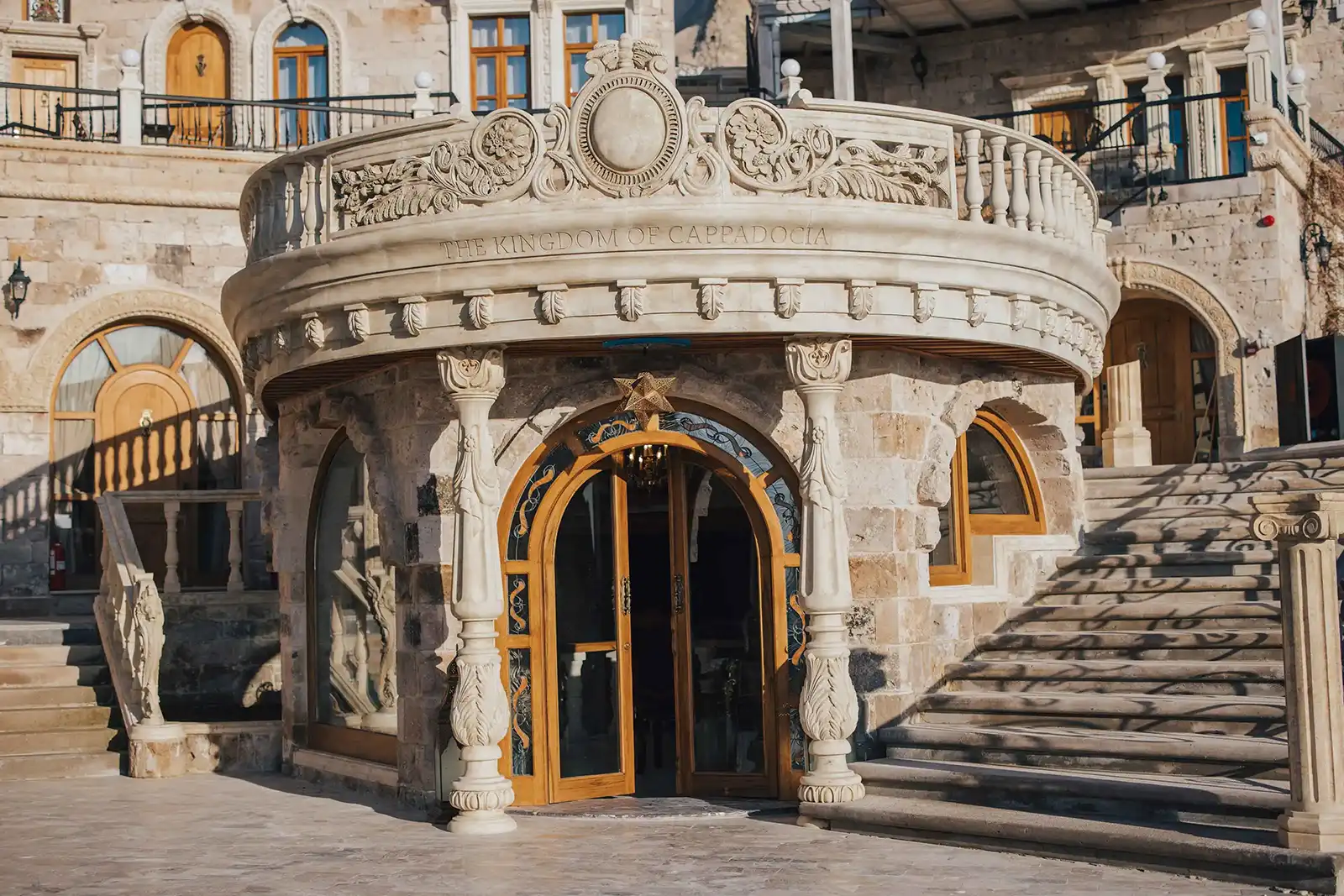
The ruler of this realm, King Arastes, harnessed the region's unique geological formations to construct a magnificent stone palace that stretched from the depths of the earth to the skies above.
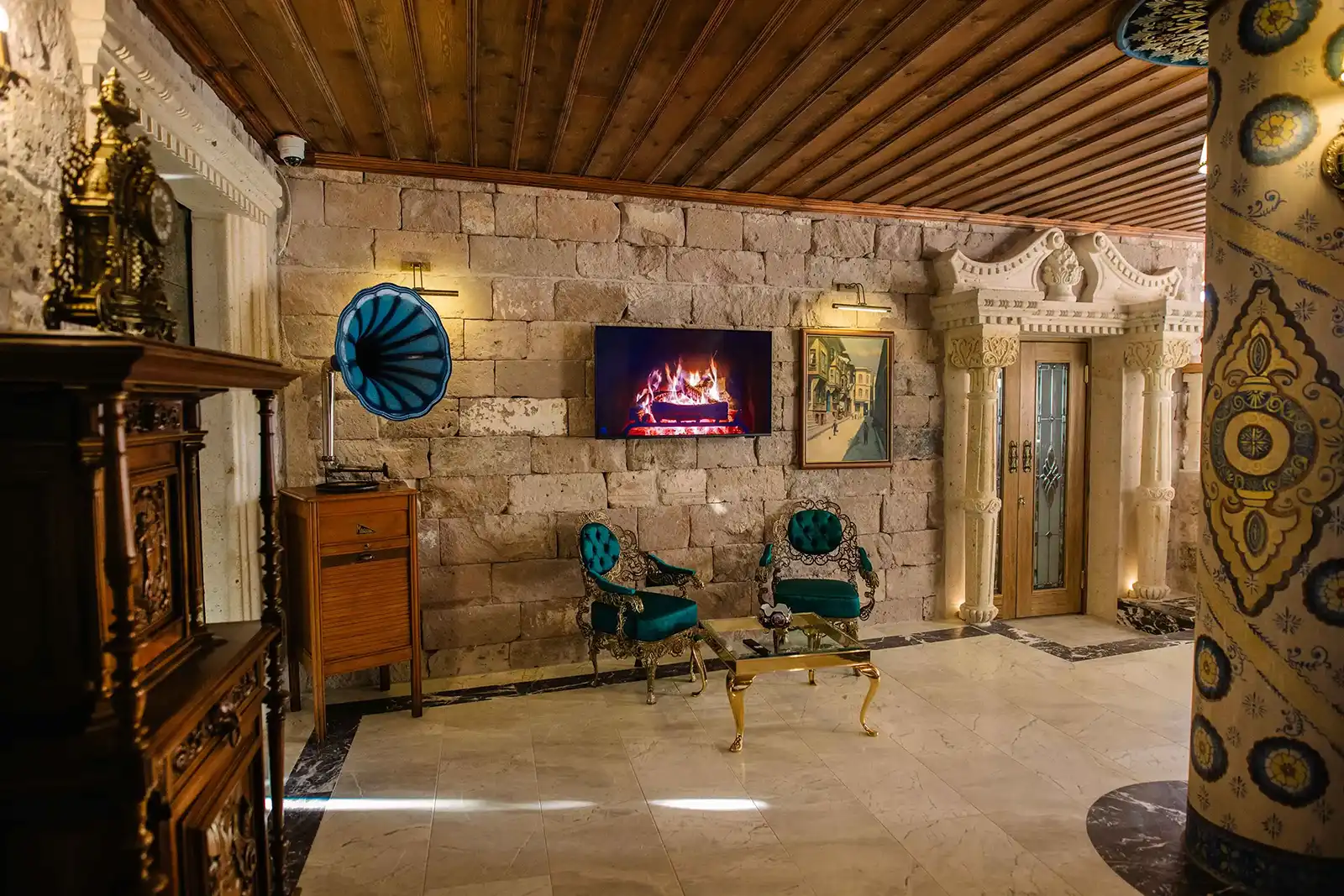
While Uçhisar Castle served as the kingdom's lookout point, the area where "The Kingdom of Cappadocia Luxury Cave Hotel" stands today was once King Arastes' private residence. But this was more than a palace—it was a sacred space where artists, philosophers, and seers gathered, and where important decisions were made.
Carved halls within the rocks, terraces gazing at the stars, and underground passageways… all were parts of this majestic palace.
However, the Roman Empire's expansionist policies brought an end to the independence of regional kingdoms. In 17 AD, under the rule of Emperor Tiberius, the Kingdom of Cappadocia was annexed and turned into a Roman province.
With Roman influence, Cappadocia evolved into one of the most significant centers of early Christianity. The kingdom's former glory gave way to monastic retreats and the birth of a new faith. Today's cave churches and underground cities still bear traces of this transformation.
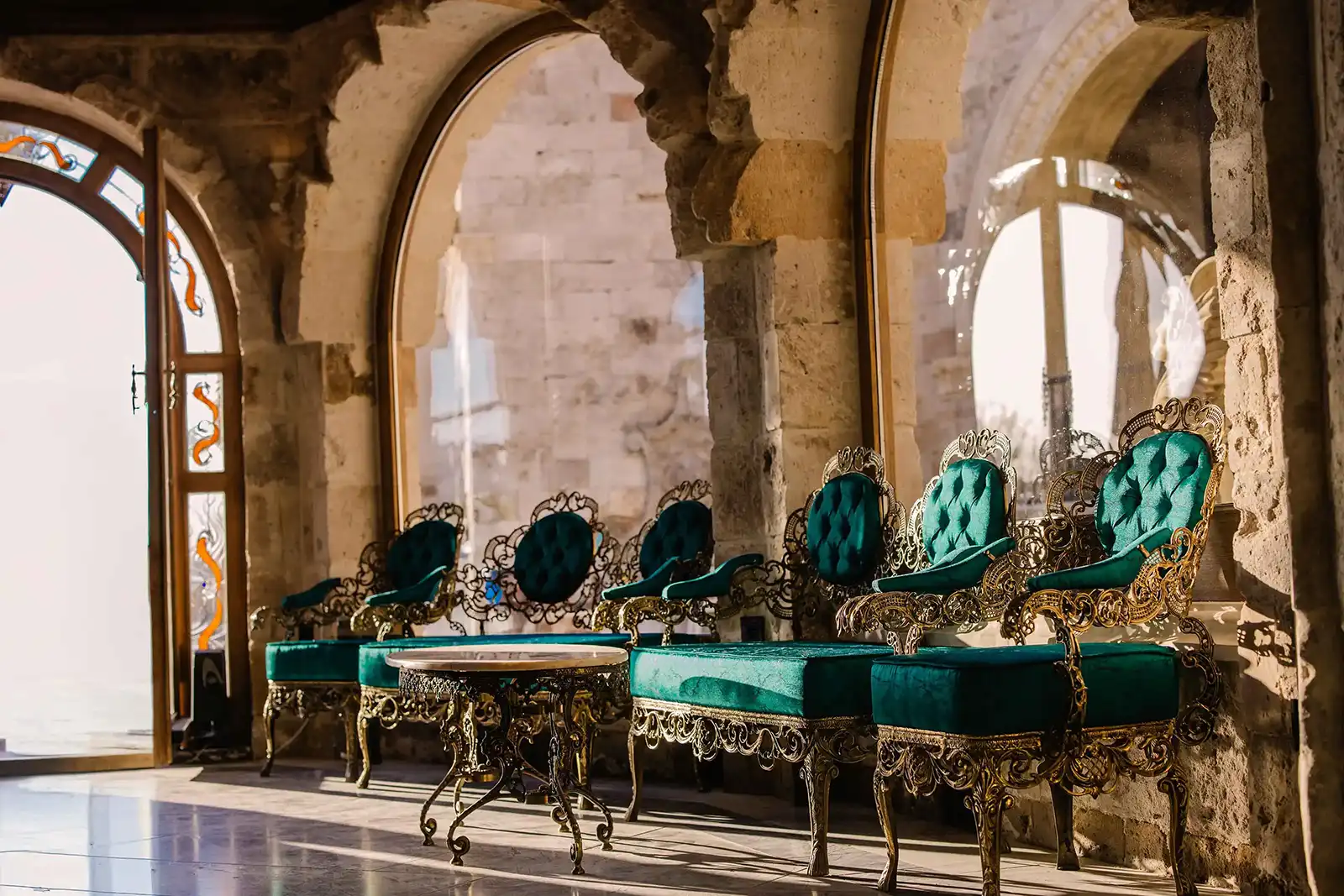
Yet King Arastes had one final wish—to remain one with this land even in death. Deep within the palace, he had a secret burial chamber built, known only to a few trusted servants. According to legend, the king's spirit still resides here—watching over peace, wisdom, and serenity.
For centuries, this structure lay forgotten, like a slumbering secret beneath the stone. That is, until the remnants of this ancient palace were rediscovered and reborn as "The Kingdom of Cappadocia Luxury Cave Hotel."
Today, our hotel is far more than just a place to stay—it is a portal through time, blending past and present, and carrying the legacy of the Kingdom of Cappadocia. Every room holds a fragment of the king's story; every stone, a memory; and every cave, a whisper…
